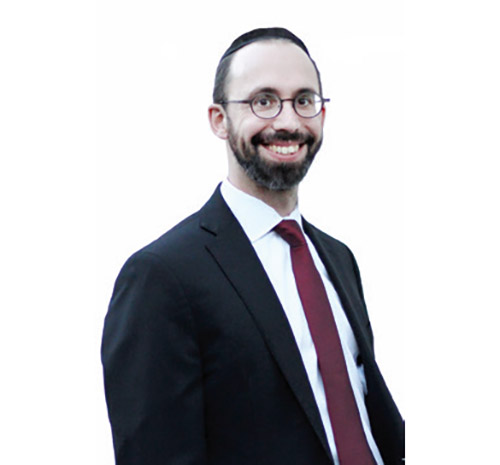
Last week, during the Aseres Yemei Teshuva (the Ten Days of Repentance), our yeshiva, in conjunction with the Agudas Yisroel Bircas Yaakov, hosted a shiur by Rabbi David Ashear on emunah (faith and trust in Hashem) as the key to teshuva (repentance). Bringing him was a very specific choice; his talks on emunah have greatly impacted my life and changed the perspective I have regarding life’s twists and turns. Rabbi Ashear has written many popular books and sends out a daily “emunah booster” email to his subscribers. Even my children read his books for pleasure and inspiration. It’s a reminder of how Hashem orchestrates everything for our benefit, even if it doesn’t appear so at the time.
This message of emunah is crucial at this time of year. The Dinover Rebbe says Parshas Ha’azinu is the parsha that bolsters emunah. Anyone having doubts about emunah should study Parshas Ha’azinu daily. Indeed, Ha’azinu contains the history of the world and the future of the world!! It discusses many behaviors prevalent in our times: Jews discarding their commitment to Torah and mitzvos, children abandoning their parents, and children who have no emunah (banim lo amun bam (32:20)). However, this would seem to contradict the prophecy in Parshas Nitzavim, which says that in the time period before Moshiach, “v’shavta ad Hashem”—many Jews will return to Hashem.
The Chofetz Chaim answers that both sources are true. In the time before Moshiach there will be two types of people. One group will see all the decadent lifestyles and join in those lifestyles to plummet further. A second group will observe and awaken their spirituality, using the decadence around them as a catalyst to return to Hashem. We saw this in our prior generation during the Holocaust. Some people moved further away from Jewish practice, while others embraced Torah even more strongly.
It’s a wonder: how can the same situation generate such polar opposite reactions?
In Ha’azinu (32:37) it is written, “He will say, where is your Hashem, your Rock of protection?” The Torah does not specify who is asking this question. Rashi explains that it’s Hashem asking klal Yisrael, “Where in your consciousness is the Hashem you used to rely on. Why don’t you rely on Me anymore?” However, the Ramban posits that it’s the nations of the world taunting the Jews: “Where is your God?? Why isn’t He helping you?” These taunts and jeers were on the lips of the Nazis as they often mocked the Jews. We thus see that there are two ways to hear this message. Either Hashem is not taking care of us, or we left Hashem and need to strengthen our emunah to deal with “soul-building” challenges that Hashem sends our way.
When we encounter a difficult situation in life we can approach it in two ways: we can have doubts regarding Hashem being there for us, or we can ask ourselves if we are truly allowing Hashem into our lives to guide us. It’s all about emunah.
Rav Moshe Wolfson explains that emunah—trust in Hashem—is the central message in Parshas Ha’azinu. Ha’azinu is read before Sukkos, since Sukkos is the chag (holiday) of emunah. We leave our comfortable homes to sit in a sukkah, being protected solely by Hashem’s mercy. The numerical value of the word sukkah is 91, which is the same numerical value as the word “amen.” Amen is emunah, since it is said to affirm that Hashem is the source of a blessing just recited.
Think for a moment. The sukkah is exposed to the elements. It’s not waterproof. It’s a clear representation that our protection and security come from Hashem. In our regular, comfortable homes, we have worries and concerns that keep us awake at night. How will we afford our monthly bills? How will we marry off our children? How can we get a given family member back on the right path? Hashem wants us to put our trust in Him. Emunah means ne’eman, reliable: Hashem is reliable! A key purpose of the sukkah is to train us to live with emunah.
This may be the ultimate lesson in our generation. In Gemara Makkos, Chabakuk said the fundamental principle one needs to focus on in the end of days is emunah. It’s not just knowing about emunah intellectually. Even believing is not enough. As Rabbi Ashear reminds us so well and continues to do so in his emails and sefarim, it’s all about living our lives day-to-day with the emunah that Hashem is always with us.
Rabbi Baruch Bodenheim is the associate rosh yeshiva of Passaic Torah Institute (PTI)/Yeshiva Ner Boruch. PTI has attracted people from all over northern New Jersey, including Teaneck, Paramus, Rockaway and Fair Lawn. He initiated and continues to lead a multi-level Gemara-learning program. Recently he has spread out beyond PTI to begin a weekly beis midrash program with in-depth chavrusa learning in Livingston, Fort Lee and a monthly group in West Caldwell. His email is [email protected].









